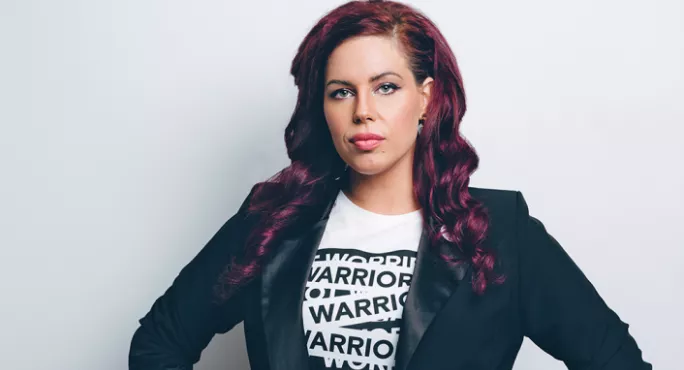- Home
- Schools can be the antidote to botox culture
Schools can be the antidote to botox culture

Last week, the media was all a flutter with news that high street chemist Superdrug would be offering cut-price botox and fillers to over-25s, on site.
It shouldn’t need stating that I unequivocally reject this idea as spectacularly daft. While Superdrug hastened to emphasise that they wouldn’t simply allow a person to walk in off the street and receive immediate treatment, neither did they explicitly state how they would enforce the over-25 rule. “Qualified nurses” would, apparently, be administering the face-freezing poisons, yet in a more professional clinic environment, a doctor would be on standby to oversee the procedure, in case complications arose.
Putting aside concerns about safety, the evolution of the makeup counter to include invasive techniques has promoted a fresh wave of body image debate. Writing for the Guardian, Sonia Sodha stated that “appearance discrimination is rife and ageism affects older women far more acutely than it does men”. In this context, it’s little wonder that the Girlguiding national attitudes survey found girls as young as seven believe society judges them more for their looks than for their achievements or character.
I’ve been campaigning in this area for more than a decade and keep waiting for a “tipping point” - a cultural moment when the barometer will swing back in the opposite direction and women will embrace their so-called flaws, en masse. While there have been a few positive advancements - a cursory glance around a tube carriage at rush hour will impress upon the casual observer the extent to which women no longer feel obligated to wear feet-crippling high heels to work, for example - that tipping point still eludes us.
During my visits to schools, I’ve witnessed attitudes to botox, in particular, change. Once seen by teenagers as the remit of celebrities and a procedure which left one looking a bit strange, constantly surprised and otherwise expressionless, botox is now seen as aspirational at best and a necessity at worst.
This is more to be lamented because the chemicals freeze facial muscles, meaning that they become “lazy” as they are unused and more botox is then required to counteract the incremental and artificial drooping effect. With the average life-expectancy now being 100, a young person receiving botox at the age of 25 is, therefore, most likely signing themselves up for 75 years of the treatment.
Of course, social media (and Instagram in particular) has played its role in this - we know that the wallpaper of our world impacts the belief systems created in our powerful unconscious mind. Young people are now utterly desensitised to the sight of photoshopped and filtered images, the cumulative impact of which is a shift in what is perceived as “attractive” and “normal”.
In my body image classes, I ask pupils to think about their beauty “line in the sand”. I make a point of letting them know what they choose to do with their bodies is none of my business. I am also careful to emphasise that the fitness, fashion and beauty industries can provide wonderful tools for self-expression and fun. Yet they can also represent a slippery slope. It’s important to keep checking back with our former selves, a person less entrenched in unrealistic expectations, to ensure they would be OK with the person we have become.
I ask pupils to write down their secret pledge to themselves, sometimes on a small piece of card they can keep with them and refer back to. Those who have shared their promises with me have written sentences such as: “I will never be someone who can’t leave the house without makeup”; “I always want to exercise for health, not because I hate my body”; and “I will never diet to fit into a certain size.” I can only hope they stick to them.
Botox was, and remains, my beauty “line in the sand”. I am a huge fan of makeup and hair dye, seeing both as an opportunity for creativity and self-expression, but I draw the line at a procedure which a) involves needles b) can’t be washed off and c) insults women everywhere by pandering to a narrative which assumes we must look younger in order to be beautiful or worthy of respect.
I am approaching 40 - an age at which women traditionally become “invisible” as our fertility window closes (we can, if we are lucky, re-emerge phoenix-like as a “sexy older woman” in the style of Helen Mirren or Joanna Lumley during our fifties) so botox is as tempting as it’s probably ever going to be, for me. Yet, in sticking to my pledge and embracing the “frinkles” that have appeared around my eyes and the lines on my forehead (from all those raised eyebrows aimed in the direction of politicians) I hope I am setting a good example.
And that, ultimately, is the greatest gift anyone who works with children and young people can give - to embody an antidote to their photoshopped existences online.
Natasha Devon MBE is the former government mental health champion. She is a writer and campaigner and visits an average of three schools per week all over the UK. She tweets @_natashadevon.
Keep reading for just £1 per month
You've reached your limit of free articles this month. Subscribe for £1 per month for three months and get:
- Unlimited access to all Tes magazine content
- Exclusive subscriber-only stories
- Award-winning email newsletters


